#louis ferdinand of france
Note
How badly did Louis xv treat his wife???
Tbh he was more just... Neglectful and ignored her throughout their marriage.
At first, it was very idyllic and they loved each other, but after giving birth the first time to Louise Elisabeth and Anne Henriette, Cardinal Fleury (who absolutely hated her) decided that until she gave birth to a boy, she wouldn't be allowed to leave Versailles. Louis XV did nothing, and it took 3 years for Maria to have a son. Also, what the hell is up with that? She had twin daughters and suddenly she *needs* to have a boy?? Have some patience, she's working on it!
She was very shy, I mean who wouldn't be when faced with the King of France. She wasn't really raised as a Princess- she was raised in a small house with very few servants with her parents, grandmother, and I'm not sure if her sister Anna was dead yet.
Louis XV cheated on her quite a lot, which I know is normal for monarchy but it is worth mentioning. After the birth of Princess Louise (her last child) she almost died, and she was advised to not have anymore children, and after that she refused access to her bedchamber for the King.
One book says,
At certain times, vigils, feasts and days consecrated to the memory of illustrious saints, she demanded- well, let us call it a "respite" from the King's attentions. But gradually new saints of minor importance were invoked, and Louis XV became impatient. He did not chafe at the great elect, but he drew the line at all these petty saintlings. At first he was content with such a device as breathing on a mirror and writing on the fleeting mist, "Your Majesty is a proud minx"; but one night, pleading that it was a saint's day, the Queen refused to admit him to her bedchamber. "Madame," he shouted at her, you shall pay for this," and immediately commanded Lebel to go and fetch a woman, no matter whom. Lebel sped away, and soon returned with an amiable and tantalizing maid of the Princesse de Rohan, who undertook these supplementary duties with the most charming alacrity.
Also after Princess Louise's birth, Cardinal Fleury decided that the budget of Versailles was just too small to handle the extra daughters they had laying around, so obviously something had to be done to them, and not yknow, the king using so much of the budget for frivolous stuff. Adelaide, aged 6, Victoire, 5, Sophie, 4, Felicite, 2, and Louise, under a year old were chosen to leave.
Maria, who had a particular attachment to Adelaide, guided her into running to her father after mass and begging him to let her stay. It worked, but none of her other children were allowed to stay. Despite this, she often sent them gifts, and once they were old enough to yknow, read and write, sent them letters.
One letter from Sophie, which I believe was after Sophie properly met her later on in life, says:
My Dear Mamma, we have been this morning to the Carmelites : they have prayed to God for you, that nothing may happen to you on the road. I am very im- patient to arrive at Versailles ; for I assure you that it concerns me very much not to see you, since I love you, my dear Mamma, with all my heart. Be convinced of this I beg of you.
She loved her children, and they adored her too. Henriette, Louis, Adelaide, and Louis's first wife, Raphaelle particularly defended her against the growing faction of Madame de Pompadour, although their distaste didn't do anything in the eyes of Louis XV. Louis Ferdinand, the Dauphin of France, particularly wasn't very close with his father, seemingly mostly due to Louis XV's treatment of Maria and personality differences.
Louis Ferdinand was a mostly kind-hearted soul who enjoyed gardening, and didn't like hunting or cheating on his wife, which were two things that Louis XV enjoyed very much.
Louis XV comments:
My son is of an indolent disposition, and his temper, like that of most people with Polish blood in their veins, is quick and variable; he has no taste; he cares nothing for hunting, women, or good living. Perhaps he thinks that if he were in my position he would be happy. At first he would change everything, appear to make a fresh start in every particular, and would soon be tired of the position of King as he is now of his own. He is made to live like a philosophe with men of intellect; he likes to do good, he is really virtuous and intelligent.
Unlike what Louis XV thought his son thinks, Louis Ferdinand truly had no desire to reign. Apparently, on a lot of writings to his children, he begins, "If I ever have the misfortune to reign–"
I know this is an abrupt end but I have to leave my house rn- if I have more to add I will reblog!
#marie leszczynska#maria leszczynska#queens of france#louis xv#Sorry for the lack of sources. I have a thing where I drop quotes about historical figures and I have a problem with forgetting to put the#sources too#louis ferdinand of france
5 notes
·
View notes
Text

I think he's the cutest little shit I've ever seen?
3 notes
·
View notes
Text
youtube
Compte de la 1ère influençeuse noire patriote américaine. Plus d'1 million de vues grâce à deux sources. D'abord l'enquête de F&D. Puis les dossiers de Mar-a-Lago détenus par Trump. Cette Candace Owens est soutien de Trump depuis plusieurs années et est demeurée solide lors du grand test de l'affaire Floyd/BLM de l'été 2021. C'est toujours par les actes en période de crise que l'on reconnaît qui est qui. Quant aux soupçons sur le "couple présidentiel" ils vont beaucoup plus loin que ce que l'on peut en dire. Aucun de ces deux-là n'est vraiment celui qu'il dit être.
Ce qui compte pour nous c'est l'intérêt supérieur du pays, libérer le pays de la tyrannie des canailles décrites par les Drumont, Bernanos, Morand, Céline, Coston, Ratier, nos repères, nos boussoles et principes directeurs dans les brouillards actuels. Relire ces grands anciens là nous mettra tous d'accord et nous fera voir plus loin.
#Candace Owens#John Michael#F&D#Faits et Documents#Egalité et Réconciliation#France#Tradition#Henri Coston#Edouard Drumont#Georges Bernanos#Louis-Ferdinand Céline#Emmanuel Ratier#Paul Morand#BLM#Xavier Poussard#Donald Trump#Brigitte#Brigitte Gate#Youtube
17 notes
·
View notes
Text
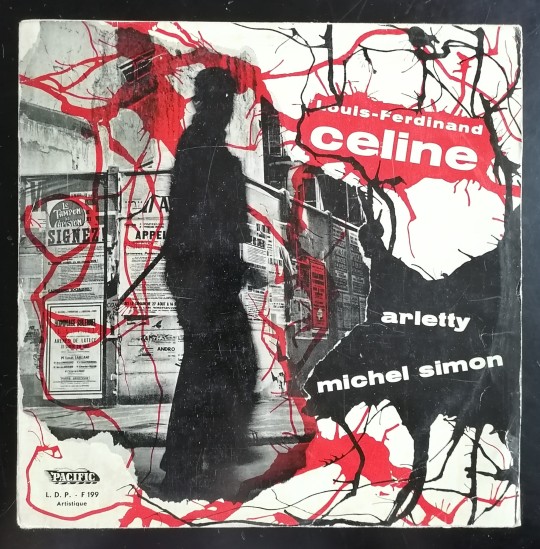


Louis-Ferdinand CÉLINE
"Louis-Ferdinand Céline"
(LP. Pacific. 1957) [FR]
youtube
7 notes
·
View notes
Photo
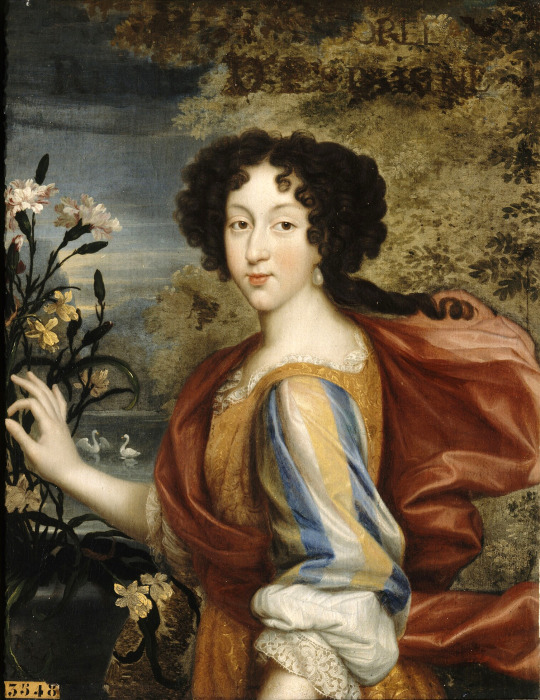
Portrait of Marie Louise d'Orléans (1662-1689). Attributed to Louis Ferdinand Elle the Elder.
#Louis Ferdinand Elle the Elder#royaume de france#maison d'orleans#bourbon orleans#marie louise d'orléans#petite fille de france#reine d'espagne#vive la reine
16 notes
·
View notes
Text
Louis Ferdinand Celine - Ceļojums līdz Nakts Galam (Ferdinand Bardamu #1)
Links uz grāmatas Goodreads lapu
Izdevniecība: Jāņa Rozes apgāds
Manas pārdomas
Ieraugot armijas pulku braši soļojam pa ielām Ferdinānu Bardamī pēkšņi pārņem patriotisku jūtu maldīgs uzplūds un kopā ar draugu kā brīvprātīgie tiek uzņemti tieši laikā, lai varētu pievienoties Pirmā pasaules kara cīņām pret Vāciju. Maldīgs, jo Ferdināns ātri vien saprot kādos sūdos nokļuvis, kur jāšauj uz…

View On WordPress
#Ceļojums līdz Nakts Galam#Classics#Ferdinand Bardamu#Fiction#France#French#Historical Fiction#Jāņa Rozes apgāds#Louis Ferdinand Celine
0 notes
Text
The updated list of nominees so far:
France:
Jean Lannes
Josephine de Beauharnais
Thérésa Tallien
Jean-Andoche Junot
Joseph Fouché
Charles Maurice de Talleyrand
Joachim Murat
Michel Ney
Jean-Baptiste Bernadotte (Charles XIV of Sweden)
Louis-Francois Lejeune
Pierre Jacques Étienne Cambrinne
Napoleon I
Marshal Louis-Gabriel Suchet
Jacques de Trobriand
Jean de dieu soult.
François-Étienne-Christophe Kellermann
Louis Davout
Pauline Bonaparte, Duchess of Guastalla
Eugène de Beauharnais
Jean-Baptiste Bessières
Antoine-Jean Gros
Jérôme Bonaparte
Andre Masséna
England:
Richard Sharpe (The Sharpe Series)
Tom Pullings (Master and Commander)
Arthur Wellesley, 1st Duke of Wellington
Jonathan Strange (Jonathan Strange & Mr. Norrell)
Captain Jack Aubrey (Aubrey/Maturin books)
Horatio Hornblower (the Hornblower Books)
William Laurence (The Temeraire Series)
Austria:
Klemens von Metternich
Friedrich Bianchi, Duke of Casalanza
Franz I/II
Archduke Karl
Marie Louise
Poland:
Wincenty Krasiński
Józef Antoni Poniatowski
Józef Zajączek
Maria Walewska
Russia:
Alexander I Pavlovich
Alexander Andreevich Durov
Prince Andrei (War and Peace)
Pyotr Bagration
Mikhail Miloradovich
Levin August von Bennigsen
Prussia:
Louise von Mecklenburg-Strelitz
Gebard von Blücher
Carl von Clausewitz
Frederick William III
Gerhard von Scharnhorst
Louis Ferdinand of Prussia
Friederike of Mecklenburg-Strelitz
The Netherlands:
Ida St Elme
Wiliam, Prince of Orange
The Papal States:
Pius VII
#napoleonic sexyman tournament#there is something mildly funny about the English being overwhelmingly fictional Englishmen#and Wellington
54 notes
·
View notes
Text
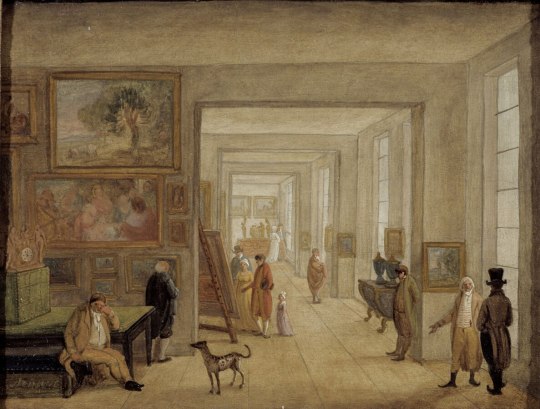
Jacques-Albert Senave - Sales rooms at the Elysée Palace in Paris in 1797 - 1797
The Élysée Palace (French: Palais de l'Élysée) is the official residence of the President of the French Republic. Completed in 1722, it was built for nobleman and army officer Louis Henri de La Tour d'Auvergne, who had been appointed Governor of Île-de-France in 1719. It is located on the Rue du Faubourg Saint-Honoré near the Champs-Élysées in the 8th arrondissement of Paris, the name Élysée deriving from the Elysian Fields, the place of the blessed dead in Greek mythology. Important foreign visitors are hosted at the nearby Hôtel de Marigny, a palatial residence.
The palace has been the home of personalities such as Madame de Pompadour (1721–1764), Nicolas Beaujon (1718–1786), Bathilde d'Orléans (1750–1822), Joachim Murat (1767–1815), and Charles Ferdinand, Duke of Berry (1778–1820). On 12 December 1848 under the Second Republic the French Parliament passed a law declaring the building the official residence of the President of France. The Élysée Palace, which contains the presidential office and residency, is also the meeting place of the Council of Ministers, the weekly meeting of the Government of France presided over by the President of the Republic.
Jacques-Albert Senave (1758–1823) was a Flemish painter mainly active in Paris during the late 18th and early 19th centuries. He is known for his genre scenes, history paintings, landscapes, city views, market scenes and portraits.
14 notes
·
View notes
Text

"Vous n'allez pas demander quand même à Messieurs Bedain, Suez-Weygand, Lebrun, Daladier, Cachin, et tous autres, de se mettre un beau jour, d'un coup, à penser très différemment de l'Intelligence Service ? Pourquoi pas la Lune ? Ou la fermeture des Loges ? Ils ne peuvent être que d'accord sur tous les problèmes essentiels ! Ils pensent comme l'Opinion Publique, ces redondants, longèvitants Messieurs, comme la Conscience universelle, exactement comme Paris-Soir, l'Humanité, le Figaro, Regards, Candide, Marie-Claire, la Croix, l'Officiel. Ils pensent tout à fait de même sur toutes les questions primordiales, comme tous les gens bien de France, comme Messieurs La Rocque, Wendel, Marin, Rothschild, Mendel, Doriot, Mauriac, Lebrun, Thorez, comme Messieurs Lazare, Verdier, Jouhaux, Stern, Bader, Dimitrof… En somme comme le Pape. C'est un chœur ! c'est un ensemble ! Tous conformes très exactement dans la juste note, admirables conformistes, avec des petites variantes bénignes. Ils parlent de tout, ces éminents, sauf des choses qui nous intéressent Et avec quelle éloquence pertineuse ils causent de rien ! Ils restent conformes au silence, à la grande directive youpine, à l'Intelligence Service, c'est leur business le silence. Ils parlent que pour ne rien dire. Ils sont payés, ils sont gâtés, ils sont gavés pour ne rien dire. C'est que du silence leurs paroles. Ils ont tous le même téléphone, et puis au fond, le même programme."
Louis-Ferdinand Céline, L’école des cadavres, 1938.
21 notes
·
View notes
Text
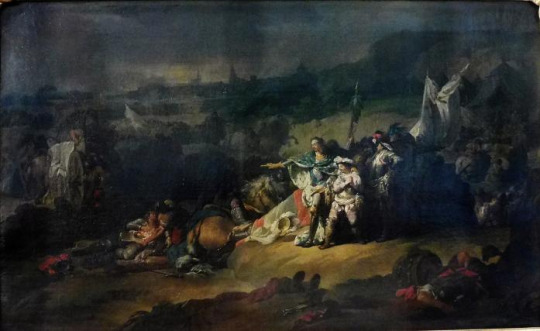
Painting of the Battle of Fontenoy by Marie Leczinska, Queen of France. Depicted here is Louis XV of France, aged 35, and Louis Ferdinand, Dauphin of France, aged 15. When Louis Ferdinand burst into tears seeing the dead and wounded, Louis XV said, "Ah, there will be many more today"
#louis xv of france#louis xv#louis ferdinand of france#dauphin louis of france#louis dauphin of france#louis ferdinand dauphin of france#marie leszczynska#marie leczinska#18th century art
11 notes
·
View notes
Text

« On a massacré la moitié de la France, la plus jeune, la plus virile pour ravigoter les basses moelles de quatre magots anatomiques. Il faut ce qu’il faut ! C’est la gloire ! Tous les grands vampires durent cent ans ! Et la prochaine ce sera bien mieux ! bien plus implacable encore, bien plus fignolé, plus saignant, plus torrentiel, ça sera la fin du cheptel. La haine des Juifs pour les animaux que nous sommes est à ce point virulente, d’une telle ardeur contenue, concentrée, que nous serons projetés, embrasés, dépiautés, éparpillés dans la mitraille, tout vifs, avant d’avoir tiqué d’un œil… »
Louis-Ferdinand Céline, Bagatelles pour un massacre (1937)
12 notes
·
View notes
Text


Ce sont les Anciens qui voient le mieux l'avenir, par exemple les vétérans de l'armée engagés dans les unités combattantes de première ligne qui un jour écrivent leurs mémoires pour qu'elles soient transmises jusqu'à nous. Ainsi de d'Aubigné, Monluc, Céline... Ainsi de Roger Holeindre. Sa fameuse citation "Si l'on descendait dans la rue on serait dissous dans le quart d'heure et les républicains armeraient les banlieues pour sauver les valeurs de la république" s'appuie non sur des spéculations d'intellectuel mais sur son expérience de terrain. Quelle expérience ?
Holeindre était un soldat des années 50-60 spécialisé dans les arrestations de terroristes, car au bout des porteurs de valise se trouvaient les porteurs de bombes, et ces bombes en explosant dans les cafés de famille le matin coupaient en 2 des fillettes, les Lola Daviet d'alors. Holeindre partait loin en mission chez les ennemis, il se déguisait en ennemi, il allait chez eux sans arme, dans leurs campements, et au signal (une sonnerie de sifflet) lui et d'autres se jetaient sur les cibles identifiées et les arrêtaient "à coup de poings dans la gueule", récit authentifié par plusieurs témoignages. Ainsi, quand un monsieur qui a démontré ce degré de courage physique recommande de ne pas descendre dans la rue on peut le croire sur parole.
Pour achever de s'en convaincre il faut relire chaque année au moins une fois Bagatelles pour un massacre (1937) pour trouver de nouveaux éclairages sur la période actuelle. Le processus de persécution des Blancs chez eux a commencé longtemps avant l'avènement de la racaille du bas (années 1970-90), lors de l'immigration de la racaille du haut (années 1920-30). Et c'est la racaille du haut qui permet la racaille du bas, aujourd'hui encore. Si vous attaquez la racaille du bas elle perdra peut-être mais la racaille du haut se lèvera immédiatement contre vous (notion du prioritaire et du secondaire chez Karl Schmitt). Regardez comme ces lâches se frottent les mains sur leurs plateaux télé depuis une semaine ! Si vous calmez la racaille du haut, non seulement la racaille du bas cessera ses déprédations mais sous un pouvoir patriote elle tournera patriote car elle est toujours le décalque de l'esprit du pouvoir. C'est le seul objectif à la fois raisonnable et moral pour le pays.
#Roger Holeindre#France#Thomas Perotto#Lola Daviet#Louis-Ferdinand Céline#Maréchal Blaise de Monluc#Théodore Agrippa d'Aubigné#Karl Schmitt
27 notes
·
View notes
Text
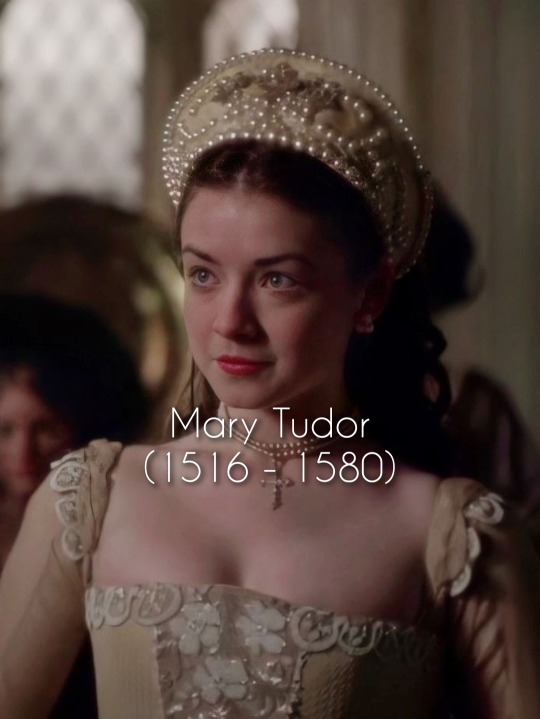

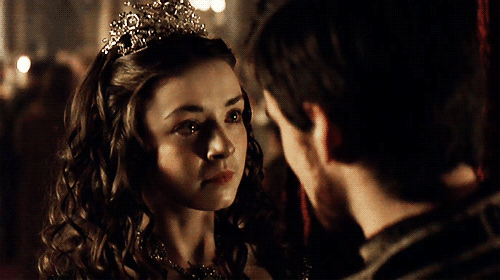

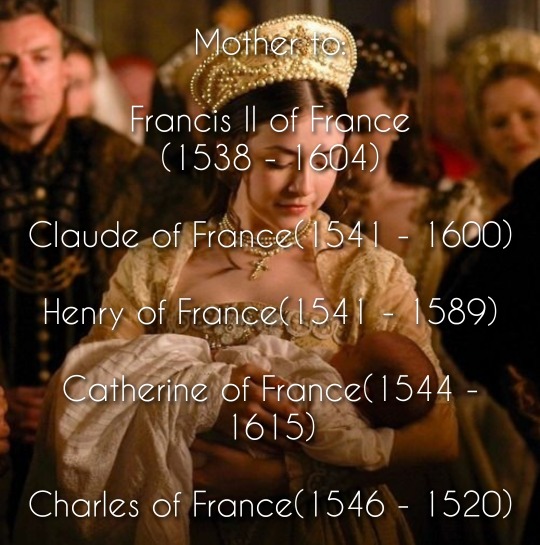

A happier life for Henry VIII's children. Part: 1.
Mary was the first surviving child of King Henry VIII of England from his first marriage to the Spanish princess Catherine of Aragon. The princess knew that she was not her parents' only child - all of her siblings died shortly after birth. The birth of a living and healthy child was a great happiness for King Henry and Queen Catherine, even though the child was a girl. That is why she became the king's favorite daughter. When she was 12 years old, her father decided to divorce her mother. Catherine did not resist the king's decision for a long time, but accepted the inevitable and agreed to the divorce with favorable terms. For this, the king, as promised, retained for Mary the status of princess and allowed the former spouse to communicate with his daughter. After the divorce for Mary little changed, she continued to grow up in the love of her father and mother, often visited both parents. The princess did not like her father's second wife, but did not show it. Anne Boleyn did not meet Henry's expectations, so he sent her to a convent under strict supervision. The king also wanted to declare Princess Elizabeth illegitimate, but Mary stood up for her sister and convinced her father not to do so. Soon the king married Jane Seymour, and a year after the wedding she gave him a long-awaited son, whom the happy father named Edward. In honor of this joyous event, Henry organized a grand feast that lasted for a whole week. In the same year, Princess Mary married Prince Henry, heir to the French throne. Before meeting his future wife, the dauphin had a love affair with Diana de Poitiers, but when he first saw his betrothed, he fell madly in love with her. Henry immediately severed all ties with Diana and was faithful to his wife until his death. The marriage of Mary and Henry turned out to be very happy. They had five children:
Francis II of France(1538 - 1604). Nicknamed "The Peacemaker" for the foreign policy calm during his reign. During his reign, France did not wage a single war. Husband of Helena of Austria, they had a good relationship. In marriage 7 children were born: Mary, Louis XIII, Anne, Henry, Christina, Philip, Gaston.
Claude of France(1541 - 1600). Queen of Spain. In 1556 she became the wife of Philip II. The spouses loved each other despite the big difference in age. They had 5 children: Philip III, Isabella, Joanna, Ferdinand, Diego.
Henry of France(1541 - 1589). Duke of Orleans. Was a favorite son for his mother, as from a young age showed a keen interest in religion. And when he became older he decided to devote his life to the service of God. He was not married and had no children.
Catherine of France(1544 - 1615). Archduchess of Austria. Favorite sister of Francis II. Was the second wife of Ferdinand II of Austria. The spouses did not love each other, but respected each other. In marriage 3 daughters were born: Anne, Mary, Eleanor. After the death of her husband returned to her homeland.
Charles of France(1546 - 1620). Duke of Angoulême. Because of his dissolute lifestyle he had conflicts with his mother. He married his cousin Jane, daughter of King Edward VI of England. The married life of Charles and Jane was not happy, because of his constant cheating. The marriage produced 4 children: Gedeon, Charlotte, Michelle and Cesar.
While in France, she did not forget about her family and maintained a close correspondence not only with her parents, but also with her second stepmother, because of the warm and close relationship between them. Before leaving, Mary and Jane had great difficulty convincing the king to bring Elizabeth to the palace so that she would not feel lonely. Henry initially had no paternal feelings for his second daughter, but was later able to develop a warmth for the girl. In 1540, Dauphine learned that her mother had died. She could not come to her funeral, as she was pregnant with her second child, but due to severe stress she had a miscarriage. Because of these events, the princess fell into depression, she did not leave her chambers and hardly ate anything. Her husband was with her all this time and provided as much support as possible, but when he realized that he could not cope, he invited Jane to help. She couldn't stay away and convinced Henry to let her go to Mary. After a few months, Mary recovered and all three returned to England. The king greeted his wife, daughter and son-in-law warmly. And the princess was finally able to honor her mother. She also spent time with her brother and sister because she missed them during the 6 years of absence. When Mary returned to France, she was already pregnant with her third child, and nine months later she gave birth to twins. Five years passed.During this time, Mary and Henry became king and queen of France and had two more children. They successfully ruled the kingdom. Shortly before his death, Henry 8 appointed his eldest daughter as regent under his young son. The queen excelled in her duties as regent and pursued a mild policy toward her subjects. When she realized that Edward was already capable of ruling on his own, she placed the power in his hands and returned to France. In 1559, King Henry of France fell from his horse while hunting and died. Mary mourned the death of her beloved husband for a long time and wore mourning for him for the rest of her life. She warmly remembered the 22 happy years they gave to each other and loved to tell her grandchildren about it. Mary often came to visit her brother, and the two developed a warm relationship. The dowager queen of France died in 1580. She was buried next to her husband Henry II in the Abbey of Saint-Denis.
Source:
Pinterest: Dinastia Tudor & Reyes Católicos, Bit_na
Tumblr: the borgias ITALIA
#history#royal family#royalty#history au#au#royal#henryviii#the tudors#british royal family#16th century#catherine of aragon#anne boleyn#jane seymour#marytudor#house of tudor#tudor dynasty#tudor england
10 notes
·
View notes
Text
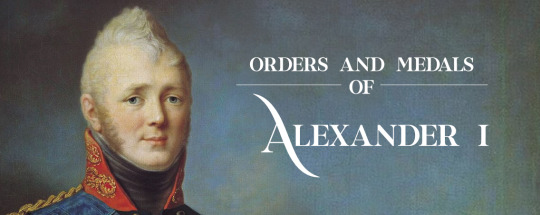


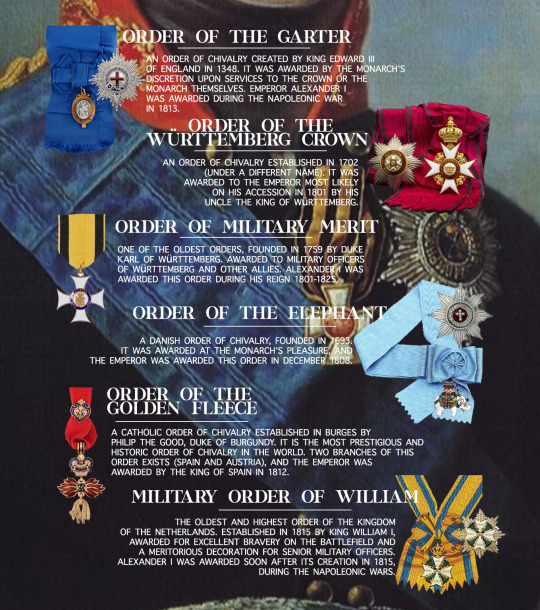


Orders and Medals → ᴇᴍᴘᴇʀᴏʀ ᴀʟᴇxᴀɴᴅᴇʀ ɪ
Emperor Alexander I of Russia, was recorded to have been a recipient of thirty awards. Eight nationals: Order of Saint Andrew, Order of Saint Alexander Nevsky, Order of Saint Anna, Order of Saint John Jerusalem, Order of the Saint George, Order of the White Eagle, Order of Saint Stanislaus, and Order of Virtuti Militari. And twenty-two foreign: Military Order of Maria Therese (Austria), Army Cross 1813/14 (Austria), Order of Saint Hubert (Bavaria), Order of Fidelity (Baden), Order of the Garter (United Kingdom), Order of the Württemberg Crown (Württemberg), Order of Military Merit (Württemberg), Order of the Elephant (Denmark), Order of the Golden Fleece (Spain), Military Order of William (The Netherlands), Order of Saint Janarius (Naples), Neapolitan Constantine Order of Saint George (Naples), Neapolitan Order of Saint Ferdinand and Merit (Naples and Sicily), Sash Order of the Three Order (Portugal), Order of Tower and Sword (Portugal), Iron Cross (Prussia), Order of the Red Eagle (Prussia), Order of the Black Eagle (Prussia), 1813 Campaign Medal (Prussia), Order of the White Falcon (Saxe-Weimar-Eisenach), Supreme Order of the Holy Annunciation (Italy), Legion of Honour (France), Order of Our Lady of Carmel and Saint Lazarus of Jerusalem (France), Order of the Holy Spirit (France), Order of Saint Louis (France), Order of Saint Seraphim (Sweden), and Order of the Sword (Sweden).
19 notes
·
View notes
Text
Warped [Time Warp Trio Fanfiction] - Chapter 17
The Palace of Versailles was beyond magnificent. It was a nearly ninety million (yes, million) square feet estate covered in gardens, winding walkways, and topiary, with the main attraction the palace itself, a towering presence of marble white and cream that glowed in the night brighter than the hundreds of candles lighting up the night.
The soft winter breeze carried the fragrance of flowers through the night air. The din of excitable chatter nearly drowned out the airy sounds of several flutes, harpsichords, and violas.
It would have left Anthony breathless… if he had been there on holiday.
He imagined Isadora would’ve adored the palace, trying to capture every pond, fountain, garden, and tree to recreate later in her artwork. She’d ask a dozen questions and inexplicably have a dozen more answers. She’d love it so much she’d beg to stay for just a few more minutes and, of course, Anthony would give in.
He sighed and placed his mask on his face. He couldn’t afford to get distracted with thoughts of his daughter, not when he was purposely heading into a trap. He had to be alert. Focused.
Anthony was glad he warped close to the entrance, and even happier he was hidden behind a large yew tree. The estate was positively crowded with hundreds of gilded carriages and thousands of guests dressed to the teeth made their way inside. Women dressed in big baroque dresses decked with ribbons and bows. Meanwhile the men looked almost as extravagant, wearing every color under the sun. Many of them wore masks similar to Anthony’s, allowing them to enter without invitation.
With a snap of his fingers, his outfit changed to match that of the aristocratic party guests. Green mist shimmered around his form and when it vanished he wore a green frock made of silk and velvet with gold embellishments. White breeches, black boots, and a jabot-- fluffy white neckwear-- completed the look, and with his green and gold domino mask, he blended in with the crowd.
Anthony recognized when and where he was: The Yew Ball. The celebration of the marriage between the Dauphin of France, Louis Ferdinand de France, the son of King Louis the XV, and the Infanta of Spain, Maria Teresa Rafaela. Many of the guests were looking for the king for even a simple glimpse of His Majesty, but Anthony had a different target he was hunting down.
Mad Jack had to be here. Even if this were a trap (and it absolutely was) and he did not need to be there, he’d still be here. The man couldn’t help himself. He had this deep psychological urge to gloat even at the cost of his goals. It was infuriating but could work to Anthony’s advantage.
The Warp Wizard made his way through crowded courtyards, making polite and short conversations to not stand out. His eyes scanned every masked face and accessed everybody for a familiar lanky build, but there was no sign of Jack.
Past fountains and Roman-styled statues, he came across the ballroom, a wide open space situated outside surrounded by fountains and beautifully shaped hedges. Couples waltzed along to the lovely music while others socialized on the sidelines. Anthony scanned the dance floor when he saw “her.”
Across the dance floor was a woman with an oversized white powdered wig and an unbelievably big and bright green dress. She stood out like a broken arm.
Anthony ignored his years of training to blend in and go unnoticed. He stormed across the ballroom to reach her, blind to the strange looks from the other guests. As if sensing Anthony’s presence, the bearer of the bad wig turned around, a wicked grin under his mustache and a mean gleam behind a monocle.
“I’ll be damned.” Mad Jack snapped his fan shut with a dramatic flourish. “Look who the cat dragged in. It’s Anthony the Steadfast.”
“You look ridiculous.”
Jack laughed, like anything in this situation was funny. “Is that any way to talk to a lady?”
“Don’t play games. Why did you bring me here?”
He had the nerve to tut-tut-tut at him, waggling his finger like a disappointed guidance counselor. “So impatient. Why don’t you ask me to dance first?”
Anthony could arrest him now. Send him to Em and be done. But he needed answers and playing along with this silly game might be the only way he might ever understand what this nutter was up to.
He held out his hand and grimaced when Jack placed his gloved hand in his. The two of them glided to the dance floor, falling into the practiced waltz they’ve done a dozen times back in their academy days.
“You’re looking well,” Jack said.
Anthony snorted. “Like you ever cared for my well-being.”
“You got me there. Never could stand your meatheadedness.”
He’s been called much worse. As Anthony rolled his eyes, he caught a glimpse of something resting against Jack’s collarbone. It was a necklace of pure gold, two bands coiled around each other like serpents.
The madman noticed what Anthony was looking at and smiled. “Lovely, is it not? A perfect copy of the Necklace of Harmonia. I took it off the hands of a witch who was squandering its power.”
Jack was a thief. That was nothing new, he always had sticky fingers even when they were young. At first, it was endearing, but then he started taking historical artifacts. Important items that always got him in trouble, and for what?
“What do you want, Jack?”
“What do I want? As if anyone has ever given a flying fury about what I wanted. If they had then we wouldn't be here now, would we?”
Anthony could never comprehend the sheer entitlement of this manbaby. Ever since they met, it was all about what the universe owed to him, what he deserved. Like a disease, it’s only gotten worse with age.
“I suppose,” he mused, “that’s not entirely true. Dulari cared, once. That is before you and my simpleton of a brother corrupted her with your utter incompetence and softness.”
“You do not get to talk about her that way! Not after the way you treated her.”
“She didn’t do anything she didn’t want to do.”
Anthony stopped dead midstep. His jaw was tight. He clenched Jack’s hands in a death grip with his, and he briefly imagined them around his neck.
Jack’s smirk widened. “Uh-uh-uh. Remember the Academy’s golden rule: Don’t cause a scene~”
Anthony dropped Jack’s hands and sighed. He pinched the bridge of his nose. “I don’t want to fight you. That gets us nowhere. Just tell me what you want with Isadora.”
“What makes you think I want—”
“For once in your life tell me the truth! I know what you’re up to, so why don’t you just admit it.”
A bluff. He still had no clue what the maniac was up to, but he hoped this would catch him off guard.
Apparently, it worked. Jack’s playful features morphed into shock before he quickly reclaimed his demeanor. “What does it matter? With those little earrings, I can’t get near her, anyway. Sounds like you’ve already solved the problem.”
Anthony’s heart skipped. Time slowed around them. “You’ve been around her?”
“I’ve had some run-ins, nothing you need to worry your empty little head about. But I must say, you ought to be ashamed. You stifled Isadora’s potential, fed her with half-truths and lies. She’s weak, nowhere near as powerful as Dulari, but for my purposes, she’s the best bet. If she doesn’t survive the process, then it’s no fault of mine, now is it?”
A chill swept through the ball. The horror of what he said hit Anthony like a crashing wave. Rage took hold of Anthony. In a blink, his fist, glowing green with magic, slammed into Jack’s face. The man flew past the dance floor, past hedges and shrieking guests, crashing through a gilded window.
Anthony summoned his wand. With a wave, he vanished and reappeared near where his fist carried Jack off to: The Hall of Mirrors.
He yelled for the few remaining guests to flee, and thankfully they listened. Hundreds of people poured out of the hall past statues and mirrors until the two of them were left alone.
He pointed his wand at Jack and raised him above the rubble and glass. The wig disappeared in the flight. His dress was in tatters revealing his suit underneath because of course, he was wearing his suit under the dress.
Manic laughter erupted from Jack’s upturned lips, speckled with red.
The blood in Antony’s veins boiled. “She is not your damned battery!”
Jack shot his hand forward. Anthony dodged out of the way of the cane sword that whizzed by, the tip barely slicing through the sleeve of his suit and grazing his arm. He winced in pain, dropping Jack in the process. Jack landed with a crouch and shot a bolt of magic at the chandelier overhead. Crystal shards as sharp as daggers plummeted down over Anthony. He would have been skewered if he hadn’t jumped out of the way, skidding ungracefully in shoes not meant for combat.
The chandelier exploded in a plume of shredded crystals. Quartz shrapnel splintered in every direction. Anthony whipped his wand like a lasso and caught the crystals overhead, hurling them back at Jack. He dodged; hardwood and dirt erupted where he once stood. He vanished in the cloud of debris.
Fire from the candles spread throughout the room, coating the room in red and orange light. Air burned in Anthony’s lungs. The flames reached high above them, licking at the marble walls and painted ceiling.
Anthony wiped at the beads of sweat forming on his brow. Cautiously, he approached where Jack lay, a pair of magic-proof handcuffs appearing in his hands in a flash of green.
“I’m finally taking you in, Mad Jack. Under Em’s authority, you are—“
Sharp pain flared from his shoulder blade. The fez-wearing man from the diner stood behind him, pulling the blade from his back, a wicked grin under lifeless eyes.
Another stab at Anthony’s side brought him to his knees. His vision doubled and blurred. He struggled to keep balance on his knees. Poison, he thought groggily. The blade was poisoned. The warmth of blood bloomed from his wounds soaking his clothes and staining the floor.
From the dust clouds, Jack emerged. Hate radiated throughout his body. He stalked towards his fallen ex-friend brandishing his sword.
“Finally, I can be rid of at least one thorn in my side.” He raised his sword, primed to rend Anthony’s head from his body weakened. “But fear not, old friend. Isadora will be in capable hands, at last.”
He swung. But the blade never touched his neck.
A flash of green as bright as the sun slammed Jack like a freight train. A blur of purple rushed past, but Anthony didn’t have the strength to follow it. His magic fizzled in and out as he tried miserably to heal his wounds. Behind him, Jack and a familiar voice shouted back and forth. Swords clashed and magic blazed. A flash of golden light seized the room, then… nothing. Silence. He couldn’t distinguish the roar of the fire and his blood rushing through his ears.
A moment passed before the sounds of footsteps quickly approached from behind. Anthony tensed.
“Anthony! Oh, dear. You’re hurt! Can you move?”
“… Joe?”
Joe the Magnificent stood before him. His purple suit was torn and his mustache was smoldering. Joe tried to help him stand, stopping when Anthony grunted in pain and nearly collapsed.
Joe frowned and fished out his pocket watch from his breast pocket. “Please hold on, my friend!”
Somewhere between bleeding out and warping, Anthony passed out, his thoughts on his daughter, her sweet face clear in his mind as everything else faded away.
#time warp trio#timewarptrio#fanfiction#mad jack#hiiii#so i disappeared#sorry about that#i can't promise it won't happen again
8 notes
·
View notes
Text

On 11th December 1748 Charles Edward Stuart was arrested in Paris after failing to leave under the terms of the treaty of Aix-la-Chapelle.
Charlie had returned to France in 1746, he continued to be driven by his dynastic ambitions for a Stuart restoration in the years that followed he faced a series of setbacks and disappointments, the first was in 1647 when Pope Benedict XIV announced his intention to make Charles’s brother, Henry Benedict, a Cardinal – a Prince of the Catholic Church. Charles described this action as being like a dagger to his heart.
Think about the impact of this appointment: hopes of a Stuart restoration to the throne were now irrevocably dashed. Such an overt allegiance to the Catholic Church would make it difficult – if not impossible – for Charles to stake a claim. It became clear that King Louis would not finance another rising so Prince Charles, with his loyal servant, Archie Cameron, rode across the Pyrenees into Spain to try to win King Ferdinand to his cause, this again was unsuccessful.
Returning to France he was joined by his wife Jean, who had suffered badly during his absence, losing two of their children from exposure as they hid in caves and on the hills. The consolation was the king of France continued, however, to accord his visitor ‘moral support’, this was however about to change.
The dates differ slightly on this next setback, in December 1748 in accordance with the treaty of Aix-la-Chapelle, Charles was requested to leave France. Charles was told to leave forthwith for the Swiss city of Fribourg, a retreat Louis had arranged for him; but he refused to be dictated to and paraded around Paris as if he “owned the city and all of France.” He was warned that he would be arrested and bodily thrown out if necessary, but he still believed he could bluff out of existence in France.
One source tells us that things came to a head mid December when…….
“………Charles arrived by coach at the opera house. The footman who opened the doors was swiftly brushed aside by armed guards. Upon orders from his most Christian Majesty, the Prince was arrested, trussed hand and foot, and carried off to the person in Vincennes, where he was to remain until his senses were restored. On December 12th, Charles finely made his submission to the King of France by letter. After a grovelling preamble about his undying devotion to Louis’s sacred person, the Prince said he was ready to leave France as commanded. He was released with money and an escort and order to Avignon."
An objection was raised by the English government to his stay in this city, and Charles departed of his own accord, early 1749 he was given a residence by the Pope.
For the next few years his movements are wrapped in mystery, which recent investigation has only partially unveiled. For some time he was living secretly in Paris, though not unknown to the French government, with his mistress, Clementina Walkenshaw, who had joined him soon after his return from Scotland.
It is certain that he was in London in 1750, and that at this time he declared himself a protestant, under the idea that by so doing he would greatly improve his chance of obtaining the English crown.
There is also evidence he was in London in 1752 and 1754 to rouse the English Jacobites into action, but without success.
In 1766 James VIII and III died in Rome; his son would ‘inherit’ the right to become Charles III, but this required recognition from the Pope and Europe’s Catholic monarchs, to me this was the final nail in the coffin, this recognition was not forthcoming.
By the time of Prince Charles’s death in 1788 he had been reunited with his only daughter, Charlotte and she took care of her father in his final, ailing years.
18 notes
·
View notes